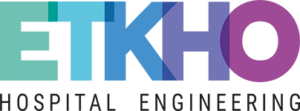The University Hospital of Gran Canaria Doctor Negrín is leading a European project on training in hospital engineering, to be developed over three years with a budget of 400,000 euros, called Smart Healthcare Engineering.

This initiative is being launched in collaboration with the University of Las Palmas de Gran Canaria (ULPGC), Transilvania University (Romania), and Manisa University (Turkey), and will provide training to more than 60 final-year engineering students. This European project will begin its first year with on-site training in Gran Canaria.
The primary objective of this initiative, which is part of the Canary Islands Health Department, is to provide students with both theoretical and practical training, including visits to hospital facilities such as the Doctor Negrín Hospital.
The project also includes the creation of manuals and reference documentation for healthcare engineering management, as well as the development of an e-learning platform for knowledge dissemination.
The role of hospital engineers in healthcare management is becoming increasingly important.

It is important to note that this is the first time in Europe that such a course is being offered, including the teaching of knowledge with practical application in a fully operational hospital in real-time.
The role of hospital engineers in healthcare management is becoming increasingly important, as infrastructure and technology are crucial factors for improving healthcare services and ensuring the system’s sustainability.
The Doctor Negrín Hospital has an Engineering Department that integrates, directs, and coordinates industrial engineering and maintenance, biomedical engineering, and IT.
This department provides support to ensure the proper functioning of all hospital infrastructures and facilities, medical equipment, and IT systems. Additionally, it anticipates future opportunities and needs to improve capacity, performance, and efficiency in healthcare delivery.
Improving Energy Efficiency
Among the current innovative projects are improvements in the hospital’s energy efficiency, with significant reductions in electricity and fuel consumption in recent years, and the digital transformation of information, tests, and processes.
Furthermore, the department is working on infrastructure transformation to adapt to the new healthcare needs of the hospital, such as the launch of day hospitals for various specialities like Cardiology and Hematology, and the Eating Disorders Unit.
Infrastructure and technology are key factors for improving healthcare services and ensuring the system’s sustainability.

Training Healthcare Professionals
Training in hospital engineering focuses on preparing professionals to manage, maintain, and optimize technological systems and infrastructure in a hospital environment. This field combines engineering knowledge with specific aspects of healthcare, ensuring that hospitals and other healthcare facilities operate safely, efficiently, and with the appropriate technology.

Key Aspects of Training in Hospital Engineerin
- Medical Technology
Learning about the design, operation, and maintenance of medical equipment, such as diagnostic machines, ventilators, monitoring systems, and other crucial devices in patient care.
- Hospital Infrastructure
Management and maintenance of the hospital’s physical facilities, including electrical systems, HVAC, water supply, and other essential services.
- Project Management
Training in the planning, execution, and supervision of projects related to the installation and upgrading of hospital technology.
- Regulations and Standards
Knowledge of local and international regulations related to safety and efficiency in hospital environments, such as FDA regulations, CE marking, and local health and safety laws.
- Safety and Efficiency Ensuring
that all systems and equipment meet safety standards and operate efficiently to avoid risks for both staff and patients.
- Innovation and Technology
Staying up to date with the latest innovations in medical technology and how to implement them in a hospital setting.
Additionally, the main areas of work for a hospital engineer include:
- Maintenance and repair of medical equipment.
- Management of hospital infrastructure.
- Consultancy and planning of hospital technology projects.
- Research and development of new medical technologies.
- Supervision of the installation of new equipment or systems in hospitals.
In summary, as always emphasized by ETKHO, training in hospital engineering is essential to ensure that hospitals operate efficiently and safely, providing patients with the best possible care through appropriate technology and infrastructure.



